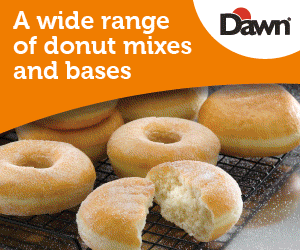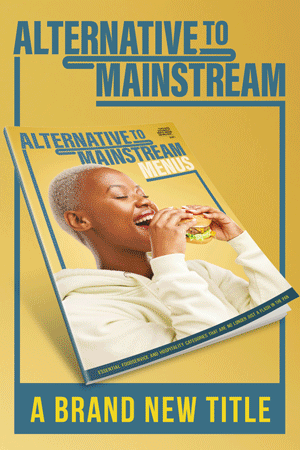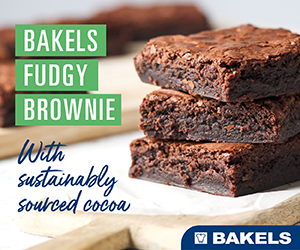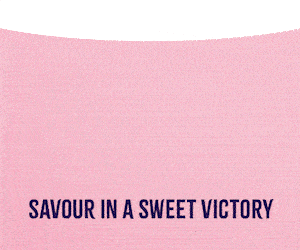STORY: The British Bakels 2021 Trend Report
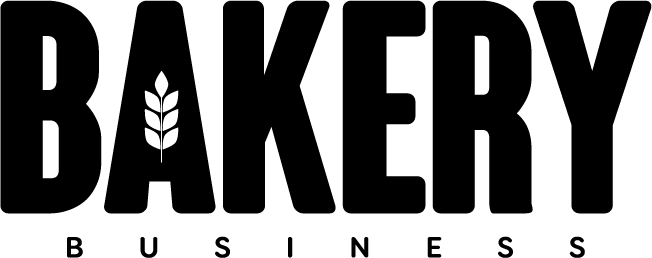
By Michael Schofield, Marketing Manager at British Bakels
Health & Hygiene
COVID-19 has driven a monumental shift in consumer focus on health and wellbeing into 2021.
Hygiene has become a key priority in our everyday lives and this is no different for bakery: an association with being “safer” has spurn a forecast decline of 14% for in-store bakery products and a spike of 6% and 11% for pre-packed and speciality breads respectively.
An upward trend over recent years of focus on health and wellbeing has been accelerated through 2020, with 31% considering eating healthily as a priority since March 2020.
While nutrition claims provide consumers knowledge that the product is good for them, making tangible health claims bring the benefits of the bread to life and provides opportunity for bakers to set their products apart from others.
Take gut health for example, 41% of consumers want their diet to support digestive health and while high/added fibre claims have a 13.3% share of bread launches through the first nine months of 2020, there were just 1.5% making a functional digestive claim.
Showcased in a number of pre-wrapped breads through the pandemic, qualified claims, using qualified ingredients, such as “good for your gut” or “supports your immune system” will increasingly resonate with consumers, as they seek foods with tangible health benefits.
This said, since taste remains the number 1 priority for 75% of consumers when buying bread, bread products must deliver on both fronts. “Bread with bits” have returned to a significant growth of 7% through the first 9 months of 2020 and opportunity remains for bakers selling breads containing wholesome “bits.” They deliver on texture, taste and built on an association for “being good for you.”
The return of Indulgence and “me-time”
Through COVID-19 consumer buying behaviour and to some extent bakery ranges have focussed on core formats and flavours, with many consumers relegating indulgent goods in favour of “essentials.”
After many months of restricted living, consumers will switch their attention back to the naughty treats, or comfort treats, that satisfy their taste buds.
As we emerge from the pandemic restrictions through 2021, “me-time” will become a priority and this includes the flavoursome sweet goods which taste great. As many have been making use of the outdoors for exercise to stave off putting weight on, adoption of healthier meals will make way for guilt-free snacking occasions.
Although sweet baked goods are likely to recover slowly, opportunity will emerge for indulgent patisserie lines, which include familiar favourite flavours such as salted caramel and chocolate fudge.
What flavours, formats, and occasions will be big in bakery in 2021?
The significant drop in OOH consumption through 2020 has sparked an explosion in the eat-at-home occasion, with 75% of consumers who eat and buy bread agreeing that a meal is more enjoyable with a bread that specifically suits it. This has already manifested through growth of over 17% and 18% for naan and other Indian bread respectively through the first 9 months of this year.
With many consumers set to feel the pinch heading into this year as a result of the recession, this dine-in occasion is set to remain popular.
As people have been encouraged to work from home to stop the further spread of the novel Coronavirus, snacking has become central to daily intake. 42% of consumers now want to see more bread in snacking-friendly formats and bakers can tap this opportunity and that of consciousness of healthier options, with snacking lines containing seeds and grains to deliver permissible varieties.
The wider bakery trends
The rapid rise of veganism and popularity of a flexitarian lifestyle is likely to be further fuelled by consumers’ desire to shop for the good of the planet. Appreciation for our own wellbeing and that of the world in which we live, has never been so strong and the foundation on which the vegan trend will continue to go from strength-to-strength through 2021.
With a marked rise in the quality of vegan products available on the market today, we could see these replace regular animal-containing lines.
Nostalgia is a trend which reminds consumers of the old-times, the times pre-covid where our freedoms were unrestricted. Nostalgia bakery goods deliver the same warm feeling and as we move into 2021 with Covid very much still on our door steps, is likely to be on consumers’ agendas in the coming months.
Since household mixing is likely to remain in some form, nostalgic goods in smaller, even snack formats, provide opportunity for bakers to target consumers buying for fewer people. Small traditional cakes
Life after Covid-19
Below are few macro cultural trends which will continue to play out in 2021:
Mental & Physical Wellbeing
Our attitude to mental health is changing, with a bigger appreciation for its impact on our daily lives and something likely to become part of the healthcare system. Connection through social media has been a lifeline for consumers craving interaction and Covid has reinforced the importance of a healthy immune system, including strong mental health.
A new Rhythm of Life
Covid-19 has accelerated emphasis on slowing down our lifestyles, adopting a new rhythm of life and a notable shift from extroversion to introversion. A premium has been put on human connection, with experiences superseding materialistic behaviours and fulfilment sought both offline and online.
Identity
Personal expression and place in society are two factors consumers will need to confront when emerging from social distancing and many will evaluate what’s worth going back to ‘normal’. Consumers are also likely to stand up for foodie brands which align closest to their values.
65% of UK consumers agree it’s important for them to lead a healthy lifestyle.
50% of UK adults agree that it is important for them to feel part of a community.
48% of UK adults agree that they prefer to be associated with companies/brands that respect their values.
59% of UK adults agree that it’s worth paying more for products of higher quality
5 billion: That’s 61% of world’s population, is predicted to live in cities by 2030.
Outside Connections
As people have been forced to juggle work, play and relaxation in the same space, many are taking a closer look at just how well the spaces they call ‘home’ serve them and what changes they’d like to make long-term. A heightened focus on community means many are turning outward to assist neighbours and small businesses. The unofficial slogan “we’re in this together,” exemplifies the common goal.
Supercharged Tech Adoption
The short-term adoption of technological behaviours will continue into the long term and eCommerce and digital transactions, in part driven by their ultimate convenience, will move further into the mainstream. Meanwhile, the impact to globalisation could be huge with a more domestic production and less complex supply chains.
Value
Re-evaluation of what is important or necessary will breed a new lifestyle, with an impact on discretionary spending and a focus on sustainability, taste and positive health. These behaviours will be driven by the affect purchases have on their neighbours/community, the taste experiences they once knew and the quest for nutritionally-balanced foods.
Price Sensitivity & Value
The financial uncertainty brought upon many households has amplified the nations sensitivity for value, raising the ultimate question: “What’s in it for me?” Whether it is taste, promotion of in-home occasions, excellent shelf life, seasonal appeal or nutritional credentials, value proposition in baked goods is more important than ever.
Plant vs. Meat
Driven by an intensified care for ourselves and the environment, plant-based and vegan food is set to surge further, under the ‘hygiene halo’. Making the plant-based choice is perceived to deliver better personal health and make a large foothold in Quick Service Restaurants (QSRs). A preview of what the reduction of air pollution spurned from the pandemic has given consumers renewed hunger for plant-based and vegan foods.
Home Conveniences
The lockdown caused an overnight switch for consumers to working from home and part of that challenge was adapting the food they bought. The developing demand for healthy and convenient foods sees consumers begin to seek ready-to-bake or finish/ready-to-eat lunch and breakfast solutions and healthy snacking to stave off “sinful snacking” (snacking grew by 50% in the UK during lockdown).
Upskilled Nation
Following a period of empty time for many, followed by a gradual return to work, consumers have developed a keener understanding of food and seasons, leading to a 20% uplift in meal occasions at home. An urge to get hands-on means they may not be willing to return to their old selves and instead, looking to diversify their home-cooked meals and recreate OOH occasions. Home baking kits provide opportunity for consumers to feel like they’ve had a hand in baking, but without the extended time required to follow traditional scratch recipes.
Care for our Planet
Restrictions on travel and focus on ‘Outside Connections’ cited above, has urged consumers to champion local food/ingredients. Food loss/waste makes up around 10% of total global greenhouse gas emissions and coupled with the 43% of bread eaters/buyers willing to purchase bread products made with leftover bread goods e.g. crusts/baguettes, presents opportunity for bakers to produce items such as Crostini or Banana Bread from surplus lines.
“Digilivery”
Supercharged tech adoption has exploded onto the scene within the food sector and bakery segment, with many bakeries switching their model overnight to one which takes their core product range online, making them available direct to consumer doors. Aggregators such as Uber Eats, Deliveroo and Just Eat made it easy for consumers to get their favourite baked goods when lockdown began. The convenience factor for consumers and the widened reach for bakeries mean online deliveries is here for the long-term.
Most bakers were quick to launch digital delivery services to their local areas and some even nationally. The convenience benefits for consumers of this is for some likely to remain, but some may well be replaced by their desire to go and experience the freshly-baked aromas and theatre of physical bakery shops.
Products which will continue to suit this route-to-market include doughnut and pastry boxes in the sweet area, as well as popular bread lines to serve savoury orders.
For more information visit www.britishbakels.co.uk



